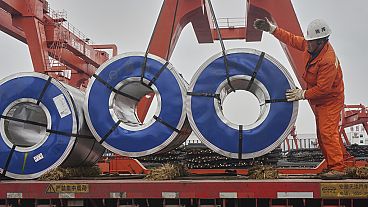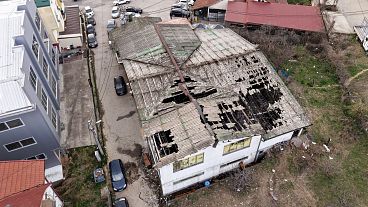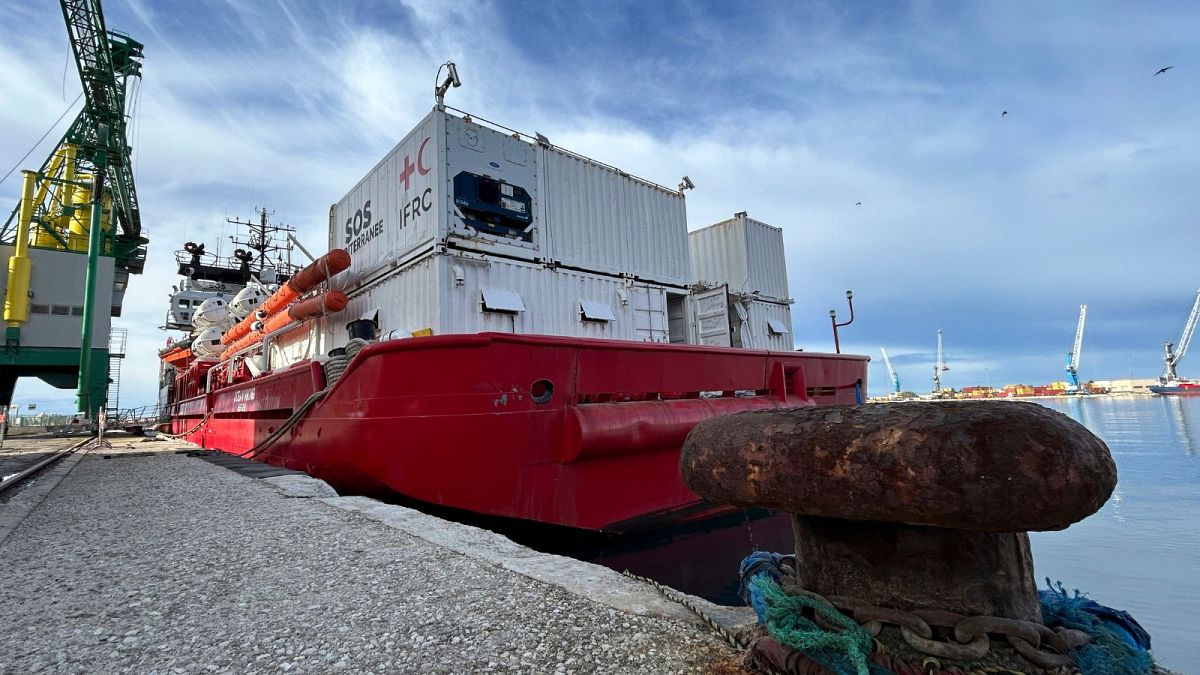After a 20-day detention imposed by Italian authorities, the Ocean Viking - a migrant rescue ship that has saved thousands of people in distress since 2016 - will be able to go back to sea on Friday.
Barely one day into the new year, on 1 January, the Ocean Viking - a migrant rescue boat chartered by the NGO SOS Méditerranée - was impounded by Italian authorities for breaking the government’s strict rules on charity groups operating such ships, proving that 2024 is shaping up to look a lot like the year before.
Giorgia Meloni’s right-wing government, which was installed in late October 2022, has introduced new regulations for migrant rescue ships in January 2023 which activists have condemned, as they say it intentionally makes their job much harder and puts migrants’ lives at risk.
According to the government’s decree, NGOs must notify Italian authorities immediately after a rescue operation and head to the port indicated by officials without delay, which is often far from the ship’s location. Ships cannot embark on more than one rescue operation at a time unless authorised to do so by Italian authorities.
If an NGO boat is found in violation of these rules, the vessel can be denied access to Italian ports or blocked for up to two months, while their captains face a fine between €10,000 and €50,000. If a ship is found in violation of the decree more than once, the vessel can be seized by Italian authorities.
This was the case for the Ocean Viking, which was detained by Italian authorities for the second time in as many months on 1 January after disembarking 244 people rescued in the Libyan search and rescue zone in the Mediterranean Sea on 30 December.
According to authorities, the ship deviated from its designated course to a port in Bari, a city on Italy’s Adriatic coast, to respond to another distress call some 15 nautical miles away.
The ship did not make a second rescue after noticing the vessel in distress was actually 60 nautical miles away. It resumed its original course to Bari, though authorities had dismissed the Ocean Viking from the mission as it was too far away.
“We are accused of not having followed the orders of the Italian coast guard, and the only fault we have is that of having followed the law of the sea,” said Alessandro Porro, a senior rescuer and president of SOS Méditerranée’s Italy operation.
Upon arrival in Bari, the Ocean Viking’s crew received a 20-day detention order for the ship and a €3,300 fine. The detention order expires on Friday, when the ship hopes to get back to sea.
“We know this is a tactic to try and stop our operation rather than something that is valid in some way,” Mary Finn, another Ocean Viking rescuer, said. “And I find it painful to feel that humanity’s not on our side or that the authorities aren’t on our side, because it’s so obvious when you do this work that what we’re doing is the right thing to be doing.”
Sara Kelany, the migration policy coordinator for Meloni’s Brothers of Italy party, agreed that saving lives is a priority. But she said the presence of charity-run ships in the Mediterranean must be limited and strictly regulated.
Kelany alleged that many of the groups that organise humanitarian missions in the Mediterranean also have a stated political objective of changing the European Union’s migration policies.
"In essence, they want to be political actors within the dynamics of immigration," she said in an interview. “Immigration is a state’s national competence, and we cannot allow private organizations to influence our migration policies with their policies.”
During winter, migrant arrivals from North Africa typically slow down in Italy, as the weather conditions make the journey across the Mediterranean Sea more difficult.
But people are still leaving for Italy’s coasts. In December, 5,237 migrants arrived on the country’s shores, according to Italy’s Ministry of the Interior. Some 174 people are considered lost at sea.
Last year, more than 60% of the 260,000 people who reached Europe by crossing the Mediterranean from North Africa first arrived in Italy, according to U.N. and Italian statistics. In the same year, more than 3,000 migrants drowned at sea while attempting the journey, according to the International Organisation for Migration.













